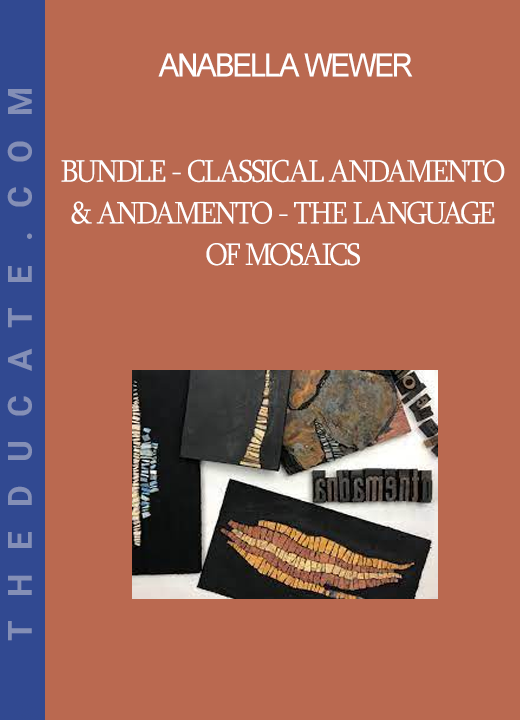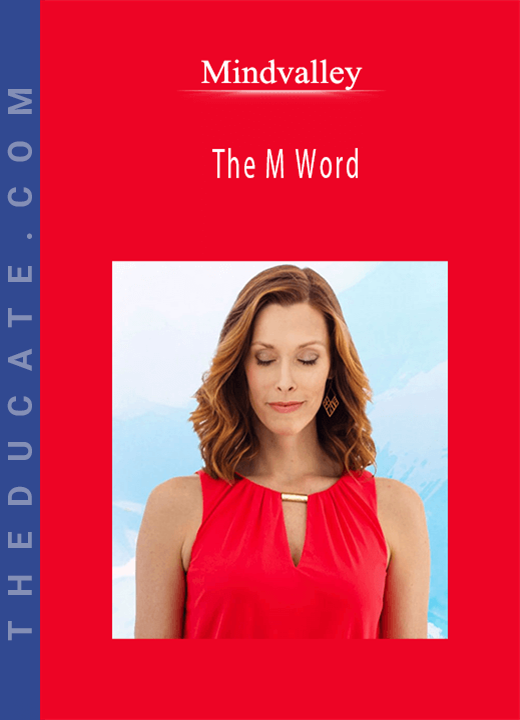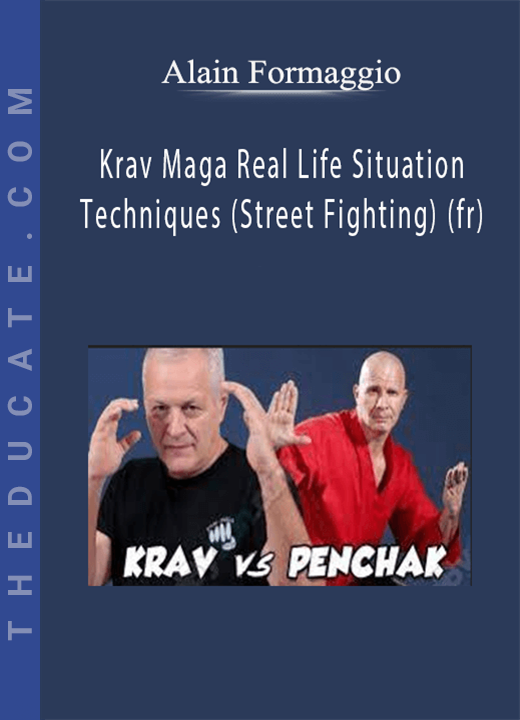Description
Anabella Wewer – BUNDLE – Classical Andamento & Andamento – The Language of Mosaics
Mosaic Arts Online is offering both of Anabella Wewer’s Andamento online courses together in a bundle option! With this bundle option, you will get both courses at a lower price than purchasing them separately. Below is the description of each of these courses. Click the titles below to watch the FREE promos and personal interviews to learn about these courses and see if these techniques are for you!
Classical Andamento in Modern Mosaics
In this very comprehensive online course, Anabella Wewer walks students through four different elements for creating mosaic art. This course is for you if you are looking to refine your mosaic skills, interested in working with a hammer and hardie, are wanting to learn drawing and understanding andamento, and hoping to use color gradation. The course will give you a very up close birds-eye-view of how to use the hammer and hardie. You will also learn everything from the proper choice of stumps, lessons on how to stand or sit with the best ergonomics and posture, and how to create the best cuts (straight or angled) of stone, marble, or smalti. Anabella goes in-depth about andamento, and uses simple language to instruct on creating lines while developing individual styles of mosaic art. Annabelle demonstrates drawing by tracing her own work. This technique is used to help improve the skills that eventually will be needed for creating andamento drawings. She also shares her knowledge on the basics of how to create a color gradation. Using smalti and some stone, Anabella breaks down the mystery of how one can use gradation to create an array of mosaic art. Lastly, in order to help students understand the use of andamento, she uses two sections to discuss andamento and color choice through the work of other mosaic artists.
Andamento: The Language of Mosaic Art
Mosaic Arts Online is excited to bring you a more in-depth approach to understanding andamento. In this course, Anabella Wewer will teach you how andamento can be interpreted as different languages. Going beyond the principles of andamento laid out in Anabella’s first course “Classical Andamento for Modern Mosaics”, this course shows you how to apply those principles. This follow up course is taught by showing a multitude of scenarios on how to approach lines, and exploring materials and the character of tesserae to achieve different effects and create narrative. As with every one of our courses, there is no need to take notes — you have the benefit of referring back to any section as often as you like, and ask questions right on each section as needed..
Letters form words, which form sentences, then paragraphs, and eventually entire texts which tell stories or otherwise allow us to communicate. In the same way, tesserae form lines, which form shapes, which tell stories and allow us to communicate a theme or our creative vision. The character of each line, each tesserae, and their placement within space, allow us to create a multitude of different effects in mosaic, much like languages have dialects, accents and slang. Grammar and typography govern how we arrange letters into words and determine how easy or hard a text is to read and understand. In mosaic, the language is seemingly simpler in that there are no language barriers — it is universal — but texture, spacing, and dimension, layered over the basic principles of andamento can give lines, and therefore a mosaic, very different characteristics, or accents. Making analogies rooted in her love of typography and languages, Anabella builds on the principles of andamento to create different languages within mosaic, exploring options for different narratives by simply adjusting spacing, material qualities and dimension, all while maintaining strict andamento in the work.
Classical andamento need not be thought of as boring, restrictive, or old fashioned, but rather as the grammar of mosaic, giving definition and clarity to the work. In this course, presented in 24 sections, Anabella shows a multitude of considerations that set the stage for each one to explore his or her particular mosaic language, calling attention to the nuances of the grammar that go beyond the simple principles of andamento established in her first Andamento course: “Classical Andamento in Modern Mosaics”.
In this course, Anabella discusses how each slight variation in how we cut and set tesserae, much like the rules of typography and how we set type, make a “paragraph” read more or less easily, allowing us to see the work better. You will see, through the use of samples, how each element affects how we perceive a work, and will watch as Anabella makes decisions about each tesserae’s placement as she builds lines of different character around what she calls “lines with personality” or “the accent of lines.”
You will have the benefit of an over-hands view as Anabella analyzes the quality of lines on her “do’s and don’t” samples, as well as going into detail about why she made specific choices in some of her finished work. This wealth of information is yours to watch as many times as you wish, in perpetuity, with unlimited log-in access to the platform, and the ability to ask questions which will be responded to within the page accompanying each segment.
Both of Anabella’s Andamento courses are also available as a bundle, at a lower price than if purchased as single courses. Follow this link to purchase the bundle, or enroll in each course individually as you wish!
Your Instructor
Anabella Wewer
Anabella Wewer
A graphic designer by profession, and a native of Caracas, Venezuela, Anabella is an internationally exhibited mosaic artist and passionate metalsmith. She is co-founder, and has been Creative Director of Black Box, a studio specializing in Web-based applications, since 1994. After discovering mosaics as fine art during a trip to the Vatican in 2004, she started taking mosaic classes in the United States, but quickly made the decision to train mostly in Italy. Her work is rooted in a sense of place and time, with a distinctive graphic feel that often incorporates type and her love of maps and fossils. Her passion for materials and history inform her work and push her to explore new territory grounded in time-proven rules and principles. Her background as a typographer guides her work, exploring the language of materials and technique to tell stories. “When I put hand to metal or stone, I aim to bring the viewer into a narrative, to provide questions to consider. I am intrigued by frozen moments in time; I like to imagine what came before and what follows. Place and time, their changing and their passing, and trying to capture their impermanence is my main artistic directive,” says Anabella of both her jewelry and mosaic work.
Anabella has studied Ravenna mosaic technique with Luciana Notturni, in Ravenna, Italy; stone micro-mosaic and opus vermiculatum with Arianna Gallo and Luca Barberini of Koko Mosaico in Ravenna; filati micro-mosaics with Maestro Carlo Meloni (Rome); abstract and modern mosaics with Verdiano Marzi (Ravenna/Paris), Dugald MacInnes (Scotland), Matteo Randi (Ravenna) and Dino Maccini (Piacenza) as well as with Valeria Manzo, Dagmar Friedrich and Laura Carraro at the Scuola Mosaicisti dei Friuli, Spillimbergo; and honed her skills using native materials with Rachel Sager; color in mosaics with Carol Shelkin, and got her beginnings under the guidance of Gina Hubler (Pennsylvania). Her native languages are Spanish and Portuguese, and she also speaks English and Italian. She lives in Macungie, Pennsylvania.
Read more: https://archive.is/uVt2X






Reviews
There are no reviews yet.